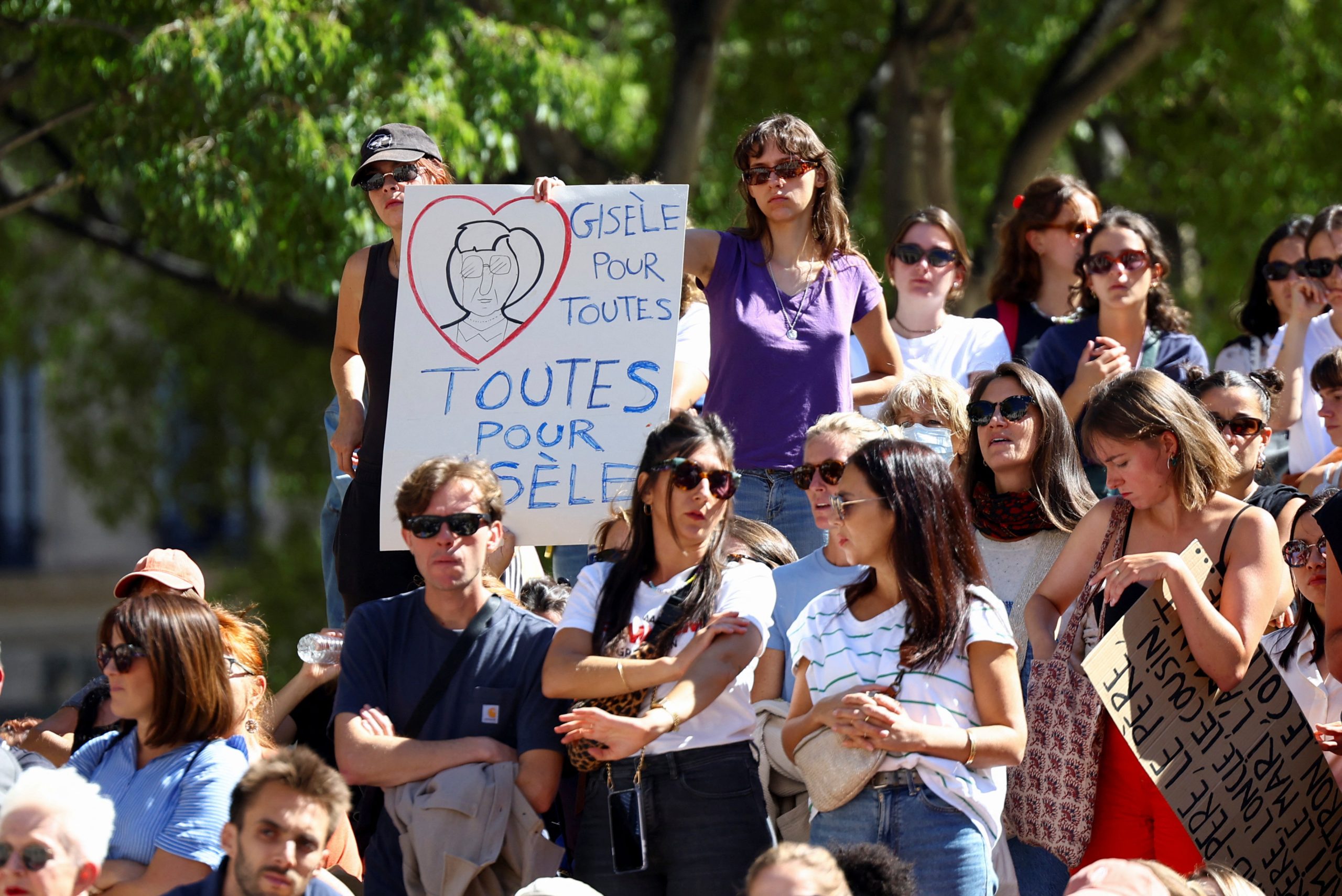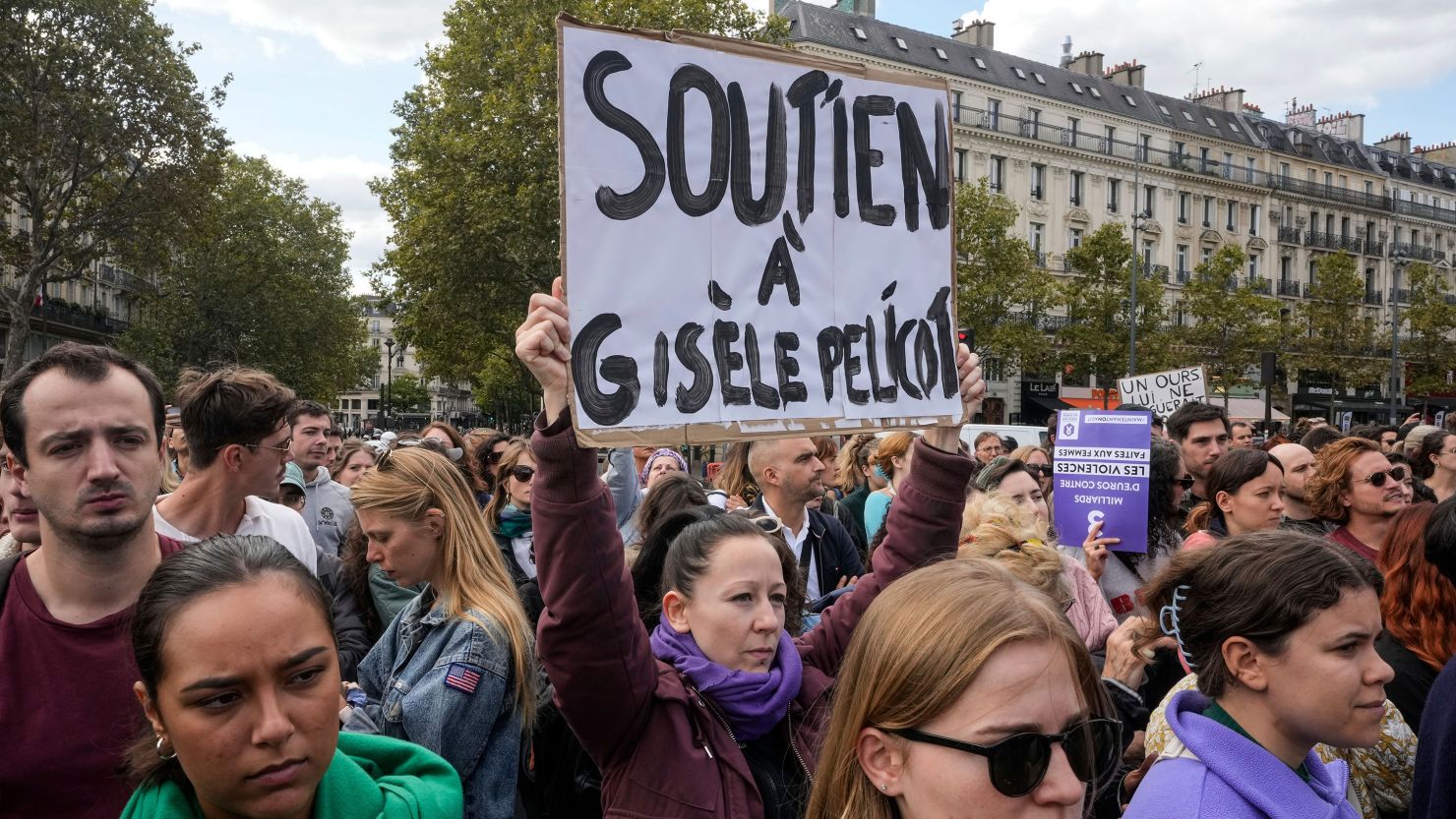On Saturday, a silent march was held in Mazan to support Gisèle Pelicot and other female victims of sexual violence. This demonstration took place in response to the allegations against Pelicot’s husband, Dominique Pelicot, who is accused of drugging his wife and inviting over 80 men to assault her at their home. The case has garnered significant attention and outrage, highlighting the pervasive issue of sexual violence against women.
Hundreds of men and women participated in the march, showing solidarity with Gisèle, though her family members chose not to attend the event. They expressed their gratitude for the public support, reflecting the broader community’s empathy and commitment to addressing these serious issues.
During the march, participants voiced their determination to stand up against sexual abuse and support Gisèle Pelicot. One woman spoke to the media, identifying herself as a mother and grandmother, and emphasized the bravery of Gisèle and the need for society to listen to women’s experiences.
She called for greater awareness of sexual violence, urging people to confront and acknowledge such abuses rather than turning a blind eye. This sentiment resonated with many attendees, reinforcing the march’s purpose of raising awareness and advocating for victims of sexual violence.

Mazans Silent March Unites Community in Support of Gisèle Pelicot Amid Allegations of Sexual Violence and Ongoing Trial
In a significant development in the ongoing trial in Avignon, judges agreed to allow videos recorded by Dominique Pelicot of the alleged assaults to be shown in court. This decision followed a heated debate about the appropriateness of airing such graphic content, with the court’s president suggesting that it could disturb public decency.
However, Gisèle’s legal team insisted on showing the videos, arguing they served as crucial evidence of her experiences. As Gisèle was rendered unconscious during the attacks and has no recollection of the events, the videos are seen as vital proof of the abuse she suffered.
The trial has revealed a complex narrative regarding the accused men, many of whom claim they did not believe they were committing rape, asserting that they thought Gisèle was merely pretending to be asleep.
This defense sparked discussions around the perception of consent and the implications of such claims in a rape trial. Gisèle’s lawyers argued that the videos counteract the notion of accidental or negligent behavior, framing the assaults as deliberate acts of violence. They emphasized the importance of confronting these narratives in court to prevent similar abuses in the future.
Dominique Pelicot, who had a history of predatory behavior and was caught filming a woman in a supermarket, has pleaded guilty to aggravated rape spanning a decade. Gisèle Pelicot has emerged as a symbol of the fight against sexual violence in France, particularly within the context of the #MeToo movement.
The ongoing court proceedings, set to continue until December, involve numerous other unidentified men implicated in the case through thousands of recorded videos and photographs. If convicted, the accused could face up to 20 years in prison, but the emotional and psychological impact of the events on Gisèle and other victims will endure far beyond the courtroom.











































